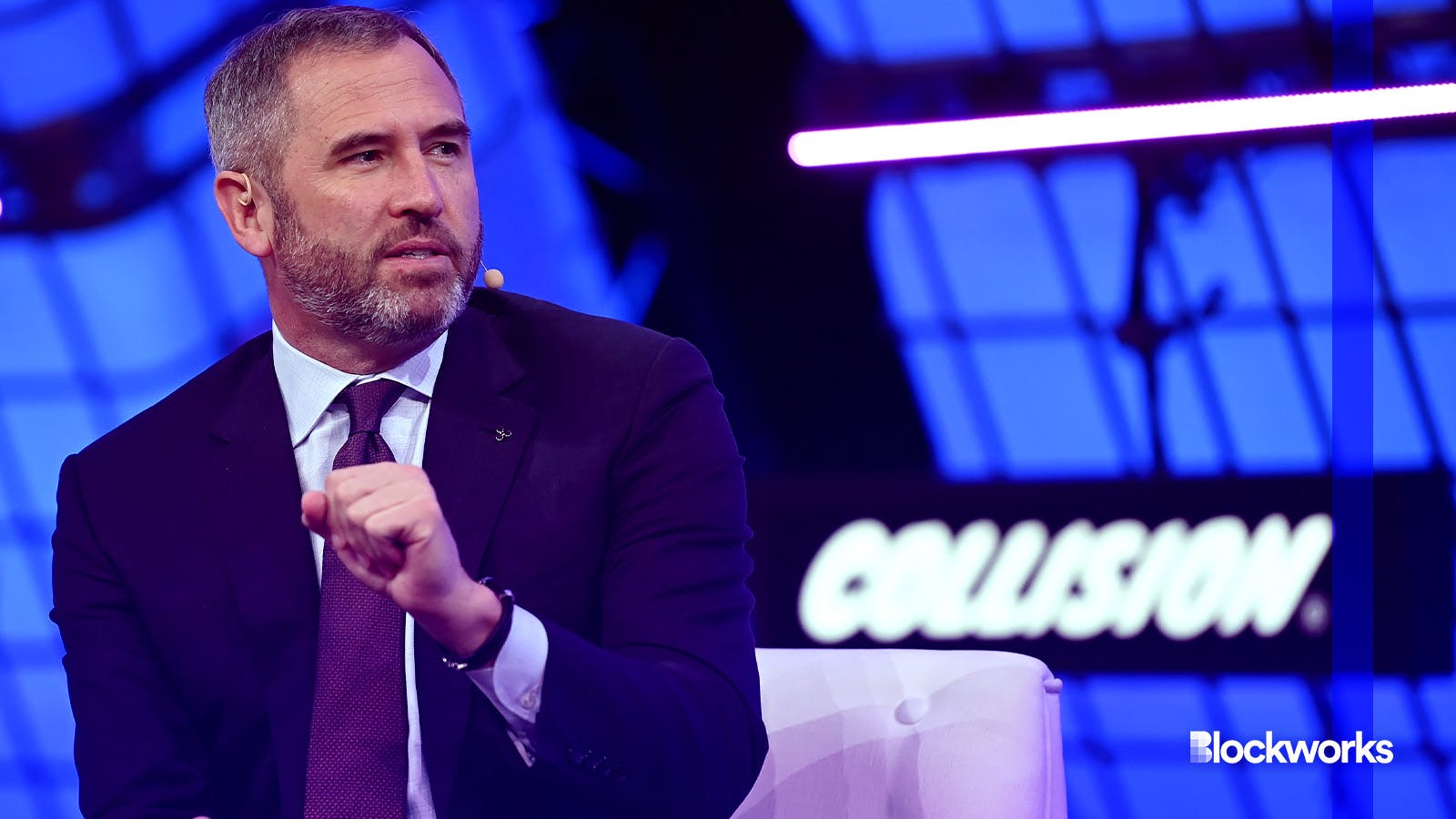Ripple, SEC argue to the very end of years-long legal battle
SEC and Ripple continue to fight over what is allowed during the remedies discovery period

Ripple CEO Brad Garlinghouse | Stephen McCarthy/Collision via Sportsfile/"SM6_9301″ (CC license)
The court has handed down its summary judgment and dropped the remaining charges in the case between the Securities and Exchange Commission and Ripple Labs. Despite these developments, the years-long legal battle is far from over.
Ripple and the SEC continued to spar this week over one of the final steps of the case: what documents the cryptocurrency issuer has to surrender so the court can hand down injunctions and civil penalties.
The SEC has asked the judge to order Ripple to release its financial statements from 2022 and 2023, and contracts pertaining to institutional sales that are dated after the securities regulator filed its initial complaint in December 2020.
Read more: One year after SEC lawsuit, Ripple CEO says 2021 was their best year yet
SEC attorneys also request that Ripple reveal how much it made in proceeds from institutional sales since the complaint was filed on contracts dated pre-complaint.
Ripple said the request is “untimely,” arguing that the SEC could have asked for this information back when the discovery period was open. Plus, Ripple’s defense team wrote in a Jan. 19 court filing, the SEC’s demands are unjustified and “irrelevant” since “ the information the SEC seeks has no bearing on the Court’s remedies determination.”
The SEC countered in a Jan. 23 court filing, arguing that the discovery period is far from over — the court ruled in November that remedies-related discovery will be accepted until Feb. 12, 2024. The agency also argued that these documents are essential to determine whether Ripple completed “new violations” after the SEC filed its original complaint.
Read more: SEC and Ripple ‘at an impasse’ as legal drama moves closer to an end
The court granted Ripple a partial victory through summary judgment when Presiding Judge Analisa Torres ruled that the company’s programmatic offering of XRP tokens was not a security. CEO Brad Garlinghouse said the company has spent over $150 million on its defense.
Torres’ ruling sided in part with the SEC, agreeing with the regulator that Ripple had offered an unregistered security with its institutional sales of XRP. The court mandated a trial for the remaining matters. These included accusations of aiding and abetting securities law violations against CEO Brad Garlinghouse and Ripple co-founder Chris Larsen. However, the SEC dropped these charges in October.
If the parties are able to come to an agreement on remedies-related discovery and the court can stick to Torres’ original timeline, the SEC is due to file its remedies brief by March 13, 2024. Ripple then has a month to file its opposition, if any.
Get the news in your inbox. Explore Blockworks newsletters:
- The Breakdown: Decoding crypto and the markets. Daily.
- 0xResearch: Alpha in your inbox. Think like an analyst.






